Want to save money and cook faster? Let’s see why induction cooktops use less energy than gas stoves—something stores don’t always tell you.
Cooking at home is a daily task for many busy women, couples, bachelors, and small families. When choosing a stove, energy use is important. After all, lower energy means lower bills and less heat wasted. Induction cooktops are getting popular because they cook food fast and use energy smartly.
But how exactly does induction cooktop energy consumption compare to gas? Is it really better for your wallet and your kitchen?
This blog will explain induction cooktop energy consumption in simple words, help you understand why it beats gas in energy use, and share helpful tips to get the best from your induction cooker. If you want to cook food quickly and easily, read on!
Explore Cygen’s Induction Cooktops for smart cooking!
What is Induction Cooktop Energy Consumption?
Let’s break down what induction cooktop energy consumption really means—and why it matters.
When we talk about energy consumption, we mean how much electricity or gas a cooking device uses to prepare food. Induction cooktops use electricity, but not like regular electric stoves that heat the whole burner. Instead, induction cooktops heat the pan directly using a magnetic field. This means less energy is wasted heating the air or the stove surface.
Gas stoves burn gas to create flames that heat the pan. This flame heats not only the pan but also the air around it. That means some energy is lost to the surroundings.
So, induction stove energy consumption refers to the actual amount of electric power used to cook your meals. Because induction heats only what you need, the pan energy use is more efficient. You get faster heating and cooking with less power.
You can find infrared kitchen appliances, electric cookers, and induction cooktops in many homes. But when it comes to energy use, induction cooktops stand out for their efficiency.
Why Induction Cooktops Use Less Energy Than Gas
Here’s the secret: gas stoves waste a lot of energy, but induction cooktops don’t.
Gas flames heat the pan, but also the air and the stove surface around it. That’s lost heat. Estimates show that gas stoves use only about 40-55% of their energy to actually cook food. The rest escapes as heat to the kitchen air.
On the other hand, induction cooktops transfer nearly 90% of their energy directly to the pan. This means less wasted heat and faster cooking times.
Because induction heats the pan itself through electromagnetic energy, it does not waste time or power warming up the burner or the air. This results in lower induction energy consumption compared to gas or even traditional electric stoves.
Also, induction cooktops heat faster. Faster cooking means your stove is on for less time, so overall energy use drops even more.
Induction cooktops also keep your kitchen cooler, as less heat escapes. This makes cooking more comfortable, especially in hot climates or small kitchens.
So, when comparing energy consumption, induction vs electric and gas, induction clearly uses less energy. This means saving money on your electricity bills and having less environmental impact.
Real Benefits of Low Energy Use for You
Lower energy use means you save money and help the planet. Here’s how it works in your kitchen.
One of the biggest benefits of low energy consumption is that your electricity bill drops. Using an induction cooktop means cooking food faster and more efficiently. Over time, this adds up to big savings—especially for busy women, bachelors, and small families who cook daily.
Besides saving money, using less energy helps reduce pollution. Power plants burn less fuel when you use an induction cooker smartly. This means cleaner air and a healthier planet.
Another plus is that induction cooktops don’t waste much heat in your kitchen. You won’t feel like a sauna while cooking! Less heat means less use of fans or air conditioning, which also saves energy.
Induction cooktops offer easy cooking appliances with simple controls. They heat up quickly, so you don’t have to wait long to start cooking. This convenience saves you time and energy every day.
Thanks to their efficient heat transfer, your food cooks evenly and faster, making your meals tastier, whether you’re boiling, frying, or simmering.
Explore Cygen’s Induction Cooktops and save energy today!
Are There Any Energy Downsides?
Nothing’s perfect—let’s look at the small energy downsides of induction cooktops. While induction cooktops save energy, some factors can affect how much energy you use:
-
Not all cookware works well on induction cooktops. You need magnetic pans like cast iron or stainless steel. Using the wrong pan wastes energy because the cooktop won’t heat properly. This means you might need to buy new pans.
-
Some cheaper induction models use more electricity to heat up or keep the temperature steady. It’s important to choose good quality models like Cygen to get the best energy savings.
-
The upfront cost of induction cooktops is higher than gas stoves. However, the energy savings over time usually cover this difference.
-
If you don’t match the pan size to the cooktop zone, energy is wasted heating air or the stove surface.
So, while induction cooker energy consumption is generally low, to get the best energy use, choose the right appliances and use them properly.
Induction Cooktop vs Gas Stove — Energy Face-Off
Gas or induction—which uses less energy? Let’s settle the debate for your kitchen.
Gas stoves have been a kitchen favourite for decades because of their instant heat and easy control. But when it comes to energy use, gas stoves lose because of heat loss to the air and slower cooking times.
Induction cooktops heat the pan directly, leading to faster and more energy-efficient cooking. They use nearly double the energy efficiency of gas.
If you often cook large meals or traditional dishes requiring slow simmering, gas might feel familiar and practical. But if you want fast, clean, and energy-saving cooking for daily meals, induction is the winner.
For bachelors, working couples, or small families wanting quick cooking with lower bills, induction cooktops are perfect. They are also safer because there are no open flames.
When comparing energy consumption, induction vs electric and gas, induction tops the chart for efficiency and speed.
Tips to Use Your Induction Cooktop Efficiently
Want to save even more energy? Here’s how to use your induction cooktop smartly.
-
Use flat-bottomed pans that cover the cooking zone well. This ensures all energy goes into the pan, not wasted heating air.
-
Match the pan size to the cooking zone. Using a tiny pan on a large zone wastes energy.
-
Turn off the cooktop a little early and use the leftover heat to finish cooking. Induction cooktops retain heat in the pan efficiently.
-
Keep your cooktop clean. Dirt or spills can block heat transfer and make cooking longer.
-
Don’t use non-magnetic pans—they won’t heat properly, causing longer cooking times and more energy use.
Following these simple tips means you get the most from your induction stove energy consumption and save money and time.
 Final Thoughts — Is Induction Energy Use Worth It?
Final Thoughts — Is Induction Energy Use Worth It?
Let’s wrap up whether induction cooktop energy consumption really beats gas for your kitchen.
Induction cooktops use less energy than gas stoves because they heat the pan directly and cook food faster. This means lower electricity bills, less heat in your kitchen, and a cleaner cooking experience.
While the upfront cost might be higher and you may need special pans, the long-term energy savings and convenience make induction cooktops a smart choice for busy homes.
If you want to cook food quickly and easily, save money, and enjoy a safer kitchen, induction cooktops are a great investment.
Is induction cooking good or bad? It’s clearly good for energy savings and easy cooking—especially for small families, working women, and bachelors.
Shop induction cooktop now at cygen and make your everyday life a contribution towards a healthier environment!
 Frequently Asked Questions
Frequently Asked Questions
1. Does an induction cooktop use less energy than a gas stove?
Yes! Induction cooktops use electricity more efficiently by heating the pot directly. This means less wasted heat compared to gas stoves, which lose heat to the air. As a result, induction cooktop energy consumption is generally lower, helping you save on energy bills while cooking faster and cleaner.
2. How much electricity does an induction cooker consume?
An induction cooker uses electricity based on its power rating, usually between 1200 to 2000 watts. However, because it heats food directly and fast, the cooking time is shorter. This leads to overall lower induction cooker energy consumption compared to other electric or gas stoves for the same meal.
3. Is induction cooking better for the environment?
Yes, because induction cooktops use less energy and create less wasted heat, they reduce your carbon footprint. Lower energy consumption induction vs electric or gas means less fuel burned overall. Plus, induction cooktops don’t produce indoor pollution like gas stoves, making them cleaner and greener for your home and the planet.
4. Do induction cooktops increase electricity bills?
Not usually. While induction cooktops use electricity, their efficient heating means meals cook faster and use less power overall. This reduces induction stove energy consumption compared to other cooking methods. Over time, you may actually save on your electricity bill, especially if you cook regularly.
5. Can induction cooktops work with any cookware?
No, induction cooktops need pots and pans made of magnetic materials like cast iron or stainless steel. Cookware without magnetic bases won’t heat properly. Using the right pots helps the induction cooktop work efficiently, keeping your energy consumption of the induction cooker low and cooking fast.


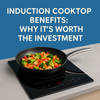
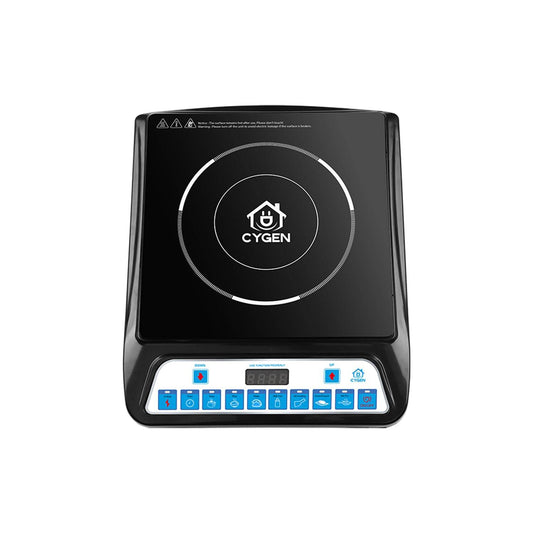
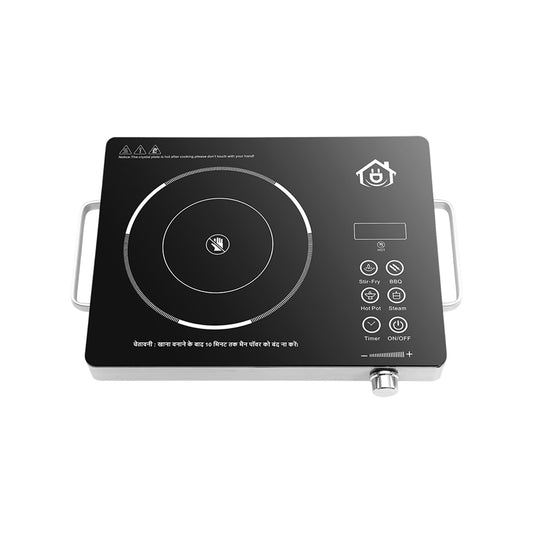
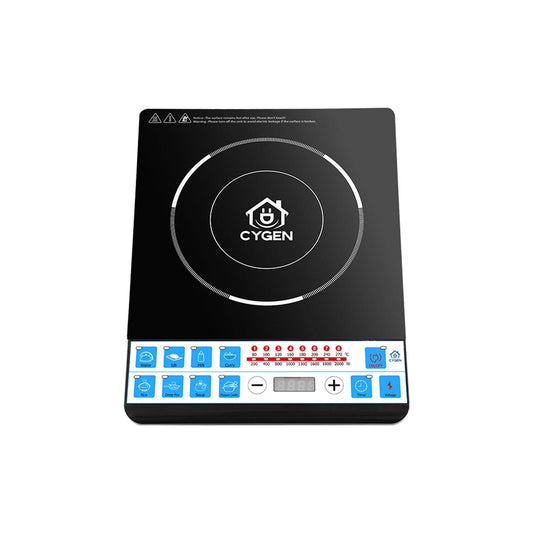
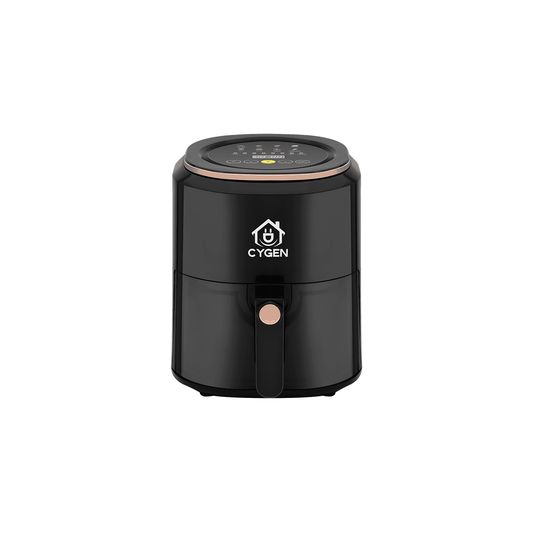
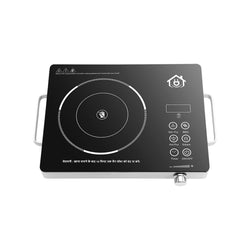
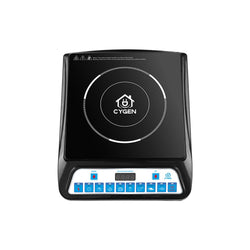
Leave a Reply
Nunc vehicula quam semper odio varius tincidunt. Vestibulum ante ipsum primis in faucibus orci luctus et ultrices posue.
Please note, comments need to be approved before they are published.